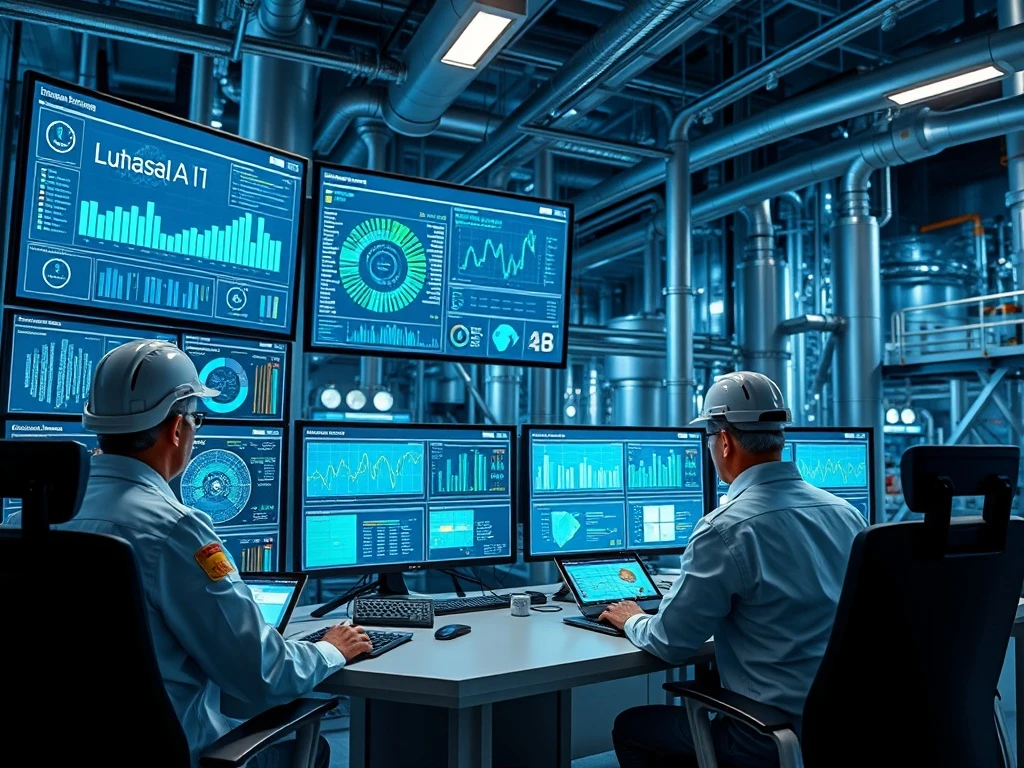Artificial intelligence is fundamentally reshaping refinery operations and process plants worldwide. Industry leaders now leverage AI in refineries to achieve unprecedented efficiency gains and operational excellence. This technological revolution delivers millions in savings while enhancing safety and sustainability.
Smart Process Optimization Through AI
Traditional methods relied on historical data and human intuition. However, AI in refineries enables dynamic parameter adjustments in real-time. Platforms like Imubit provide continuous data-driven fine-tuning that maximizes throughput and product quality. Operators respond instantly to changing conditions rather than waiting for scheduled reviews.
Predictive Maintenance Prevents Costly Downtime
AI-powered systems analyze vibration data and temperature fluctuations to detect equipment issues early. This approach transforms maintenance from reactive to proactive. Key benefits include:
- Reduced unplanned shutdowns by 45-60%
- Lower maintenance costs through targeted interventions
- Extended equipment lifespan with precise servicing
Energy Efficiency and Sustainability Gains
Refineries consume massive energy amounts, making efficiency crucial. AI algorithms optimize furnace firing rates and heat exchanger networks beyond human capability. These adjustments significantly reduce fuel consumption and greenhouse emissions. Sustainability targets become achievable through intelligent energy management.
Enhanced Decision-Making Across Operations
AI breaks down data silos between departments. Plant managers see operational impacts on financial outcomes immediately. Engineers test virtual scenarios before implementation. Executive dashboards translate technical data into clear business insights. This integration creates faster, more informed decision-making throughout organizations.
Safety Improvements with AI Monitoring
Refineries face constant safety challenges from high-pressure equipment and volatile chemicals. AI systems monitor thousands of variables simultaneously, detecting anomalous patterns human operators might miss. Facilities also use AI simulations for training staff on rare dangerous scenarios. This digital vigilance enhances overall plant safety protocols.
Implementation Strategies for AI Adoption
Successful AI integration requires cultural adaptation alongside technical implementation. Companies should start with pilot projects to demonstrate value quickly. Operators need to trust AI recommendations, while leadership must commit to long-term adoption. Gradual expansion from single units to plant-wide systems proves most effective.
Future Outlook for AI in Refineries
The technology continues evolving from innovation labs to control rooms. AI becomes an extension of human expertise rather than replacement. Refineries transform into adaptive, efficient, and resilient operations through incremental AI applications. This evolution represents not just competitive advantage but essential industry survival.
Frequently Asked Questions
How does AI improve refinery efficiency?
AI analyzes real-time data to optimize process parameters, energy usage, and equipment performance. This continuous optimization delivers efficiency improvements human operators cannot achieve manually.
What are the implementation costs for AI in refineries?
Costs vary based on scale and existing infrastructure. Most companies see return on investment within 12-18 months through reduced downtime and improved efficiency.
Can AI completely replace human operators?
No. AI serves as a decision-support tool that enhances human expertise. Operators remain essential for oversight, exception handling, and strategic decision-making.
How reliable are AI predictions in refinery operations?
Modern AI systems achieve 85-95% prediction accuracy when properly trained with quality data. Reliability improves continuously as systems learn from operational feedback.
What data security measures protect AI systems?
Refineries implement multi-layered security including encryption, access controls, and continuous monitoring. Most systems operate on isolated networks with regular security audits.
How long does typical AI implementation take?
Pilot projects usually take 3-6 months. Full plant-wide implementation typically requires 12-24 months depending on complexity and integration requirements.








